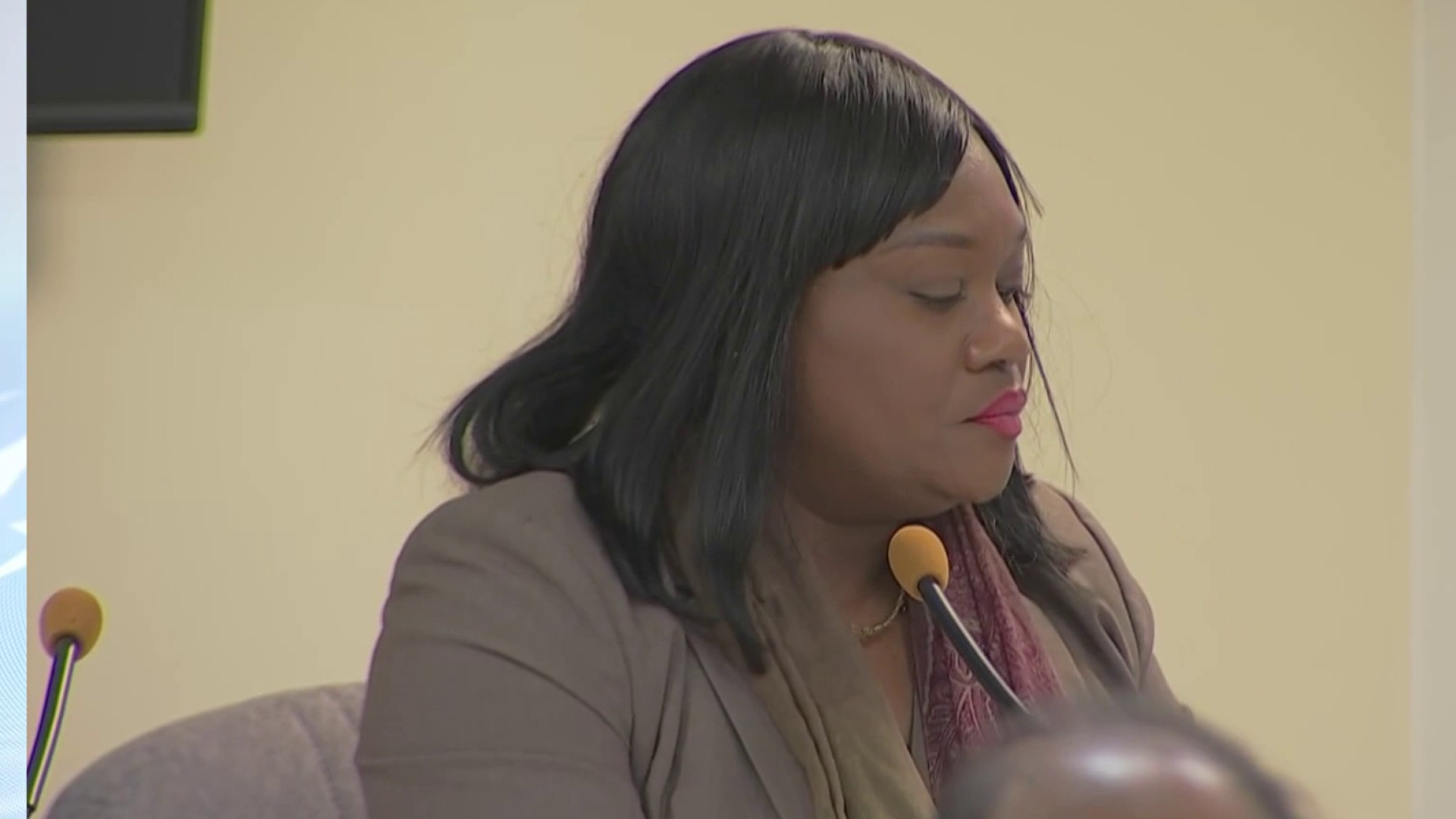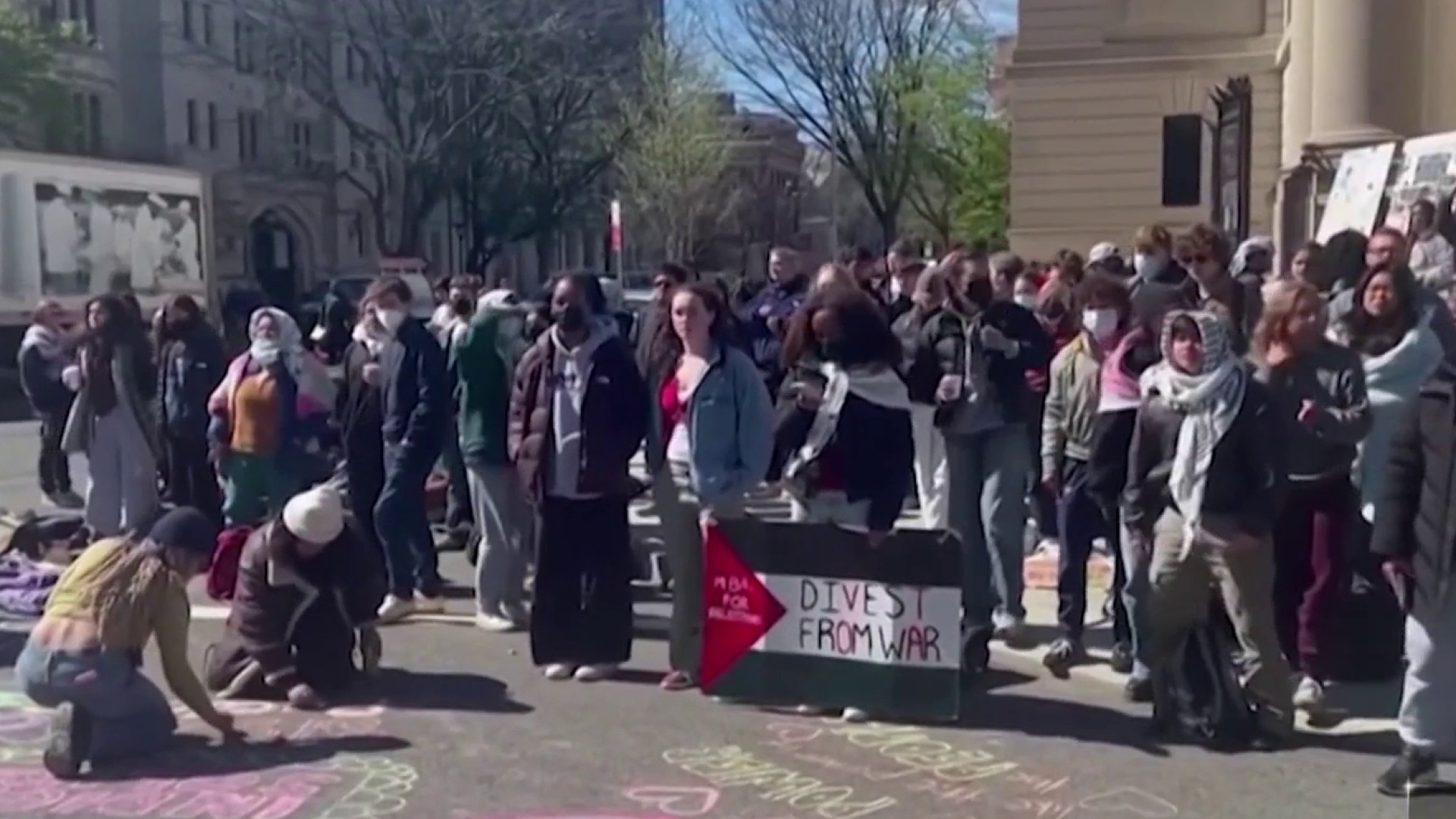Defendants in Montgomery County said they were repeatedly sent to jail by a district judge over fines and court costs they didn't have the money to pay. Court observers say it's happening more frequently across Pennsylvania.
Anna Lisa Wodarski made a call to District Court 38-1-15 in Norristown the day after she learned there's a bench warrant out for her arrest. She hadn't responded to an open container ticket she received back in 2012. Now, she would like to get the warrants lifted until she has money to pay the fine.
The woman on the phone told her she would need to come in with the $50 fee for a hearing, visibly frustrating Wodarski.
She turned away and whispered, "This is why I want a drink." It's a half joke. She's a recovering alcoholic living in transitional housing for women on probation. She still reports to a probation officer for an old drug conviction.
Judge Francis Lawrence has already sent Wodarski to jail six times in the past over unpaid fines and court costs. She's served a combined two months, costing Montgomery County taxpayers more than $3,000.
Modern-day debtor's prison
According to court records, Lawrence sent people to jail 228 times from 2011 through the middle of December 2013 for "failure to pay collateral." That's money paid in advance of a plea, used here sort of like bail to make sure defendants attend the hearing to contest the ticket or the fine they're asked to pay. These could be traffic tickets, having an open container in public or failing to keep your dog on a leash.
Local
Breaking news and the stories that matter to your neighborhood.
Wodarski and a half-dozen other defendants contacted said they were sent to jail for costs they didn't have the money to pay.
This is illegal, according to Vic Walczak, legal director for the ACLU of Pennsylvania.
"What is perfectly clear under both the U.S. Constitution and the Pennsylvania Rules of Criminal Procedure is that you cannot send someone to jail if they cannot afford to pay the fine," Waldzak said, "because that's the equivalent of having a debtor's prison — of putting someone in jail simply because they're poor."
People are going to jail in advance of a hearing often enough that the Pennsylvania Criminal Procedural Rules Committee, lawyers and judges who look at issues in the system have proposed changes to the judicial code, emphasizing that jail should be a last resort.
Records show this happening in Montgomery County at least as far back as 1999, with people spending from a day to a month in the county jail. Each day behind bars was worth $40 towards their total fines and costs.
A family with deep roots, personal connections
Lawrence met with a NewsWorks reporter twice but declined to make any comments on the record.
The personable, 24-year veteran of the bench keeps two bound copies of the Constitution on his desk. He has deep roots in Norristown, the Montgomery County seat, about 30 minutes from Center City Philadelphia. Lawrence's father was a district judge and councilman.
"The Lawrence family — I don't think there's any other family that has so many people involved in public service," said former borough police chief Hank Cisco.
When Mother Teresa came to Norristown, Francis Lawrence Sr. organized the whole event. Lawrence's sister was a councilwoman until earlier this month. His brother was recently a finalist for police chief.
"Norristown needs this type of, not only judge, but police officers," said Cisco. "They have to know the people." He said this familiarity makes Lawrence a better judge.
Daveta Johnson is one of the defendants who has gotten to know Lawrence. She has has been intermittently in and out of work for the past several years and appeared in front of Lawrence in 2010.
As she recalled, he said, "OK, you know it's been 'x' amount of years now, and you haven't paid this, so I'm going to teach you a lesson. You're going to the county jail."
The local court keeps no transcripts, and Lawrence declined to respond on the record about this or other cases.
Johnson thinks she sent a not guilty plea back in the mail — late — on the ticket in question, for disorderly conduct from 2009. She had forgotten all about it until the day police picked her up sitting on her block with a friend.
Walczak of the ACLU argues that, with jail on the table, lawyers should enter the picture. That didn't happen. Lawrence sent Johnson straight to the Montgomery County Correctional Facility.
"I'm sitting there with people who were on probation violations and really hard charges," said Johnson of her time in MCCF. "I just was beside myself ... because even though I knew I didn't do anything majorly [sic] to be, you know, stuck there — it just really felt like I was going to be stuck there."
A difficult population
In these types of cases, sometimes people will be found not guilty after they've done jail time for failing to appear. Since some come before him for misbehavior again and again, especially related to alcohol or drugs, the judge may recognize the "regulars."
Records indicate many of those jailed are homeless.
Tony Salvatore works with people who have severe mental health needs for Montgomery County Emergency Services. The nonprofit psychiatric hospital also does crisis intervention work. For others struggling with substance abuse, Salvatore says the same tools aren't available. These people can fall through the cracks.
"Working with these folks can be very frustrating if they're not ready to work with you," Salvatore said.
"The district justice ... is probably using this coercion — if you want to call it — or this force or, you know, the biggest stick that he has at his disposition to kind of nudge these people out of this behavior."
Even if that pressure had some effect, Walczak of the ACLU says it's simply unfair to jail people when someone with the means to pay would get a slap on the wrist.
"It really is a situation where the judge has all the power," Walczak said. "The judge in essence is playing defense lawyer, is playing prosecutor and is being the judge, and if he or she decides that they're going to violate the rules, there really isn't anybody present at the time to prevent them from doing so."
'It's like you can't breathe.'
Pennsylvania's Criminal Procedural Rules Committee recently reported an increase in stories of people jailed over traffic and summary citations around the state. Walczak adds that this grew around the country as the economy worsened. Some municipalities ramped up collections to try to raise money.
The Rules Committee has proposed changes to the state judicial code. They would require judges to hold hearings on a defendant's ability to pay within 72 hours and also to write down the reason they incarcerate someone. The Committee chose not to address whether defendants are entitled to lawyers.
Transcripts are not always kept in these municipal courts and the district judges presiding are not required to be lawyers. Many, including Lawrence are not. They're elected to six-year terms.
Meanwhile, Anna Lisa Wodarski feels she has an immediate dilemma. She'd like to work out a deal with Lawrence to pay the fines later but she's afraid to go see him.
"Now I'm going to get a little overwhelmed because it's like, 'What do I do?' And then it's like, you walk down the street, and you don't know if you're going to get picked up, and it's all that fear. 'Am I going to go to jail?' And there's everything that I just worked so hard for. And it's like constant fear. It's like you can't live. It's like you can't breathe," she said.
Wodarksi claimed Lawrence once told her in court that he didn't want her in his town. Without a transcript, that can't be confirmed. She's convinced that if she goes back to see him, he'll send her to jail again. So she says she won't go back.



